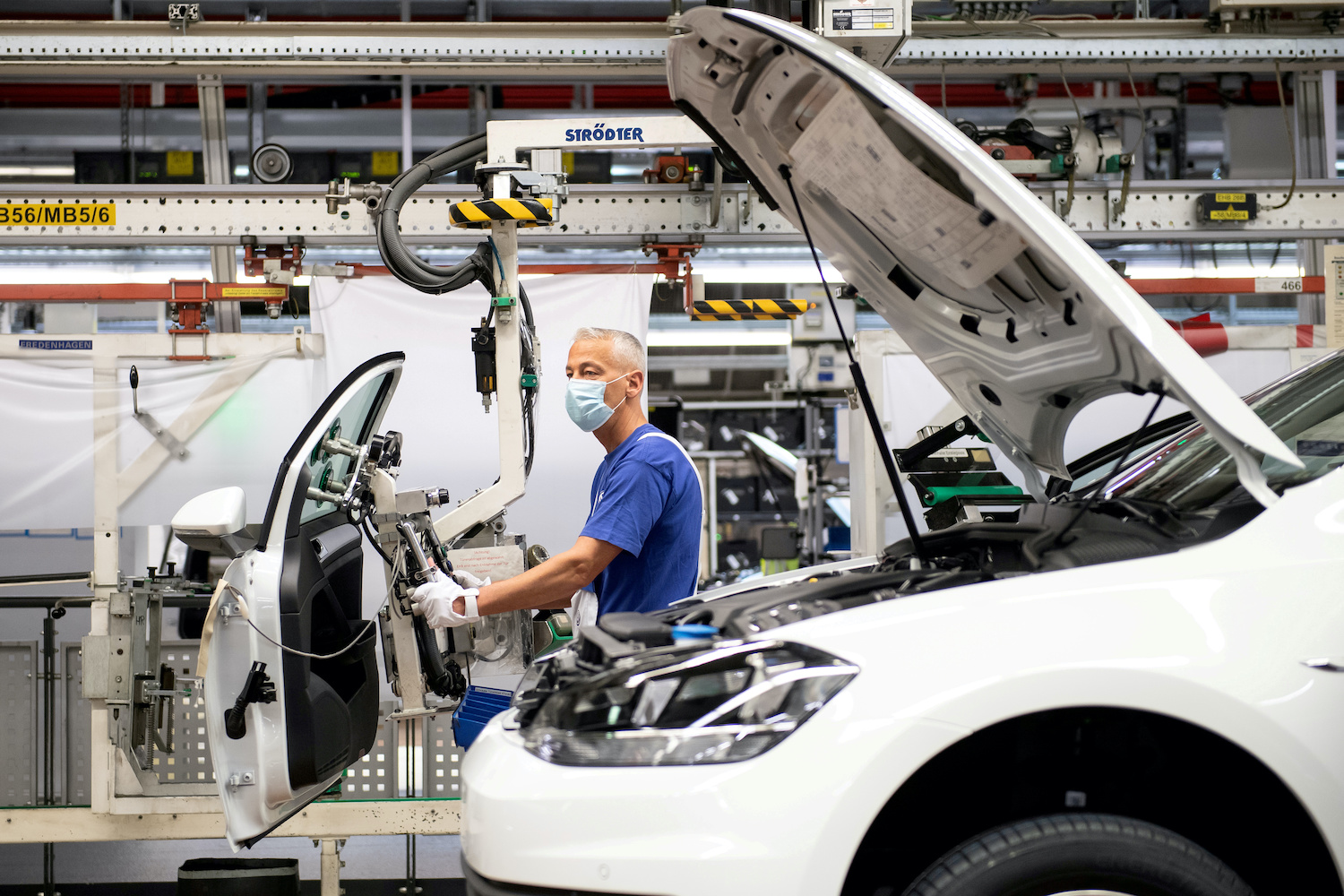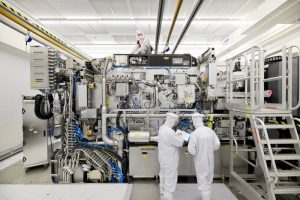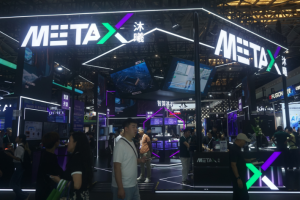Automakers are facing up to a harsh new truth – that when they say ‘jump’ not everyone listens anymore.
Semiconductor manufacturers, faced with demanding clients amidst a global chip shortage, have been prioritising the tech firms over the car companies because they buy more advanced, higher-margin chips.
This has forced car manufacturers, including Volkswagen, Ford and General Motors, to cut output as the chip market was swept clean by the smartphone makers.
Read more: Asia Times Financial rebrands to celebrate new indexes
The semiconductor shortage – over $800 worth of silicon is packed into a modern electric vehicle – has exposed the disconnect between an auto industry spoilt by decades of just-in-time deliveries and an electronics industry supply chain it can no longer bend to its will.
“The car sector has been used to the fact that the whole supply chain is centred around cars,” said McKinsey partner Ondrej Burkacky. “What has been overlooked is that semiconductor makers actually do have an alternative.”
Automakers are responding to the shortage by lobbying governments to subsidise the construction of more chip-making capacity.
In Germany, Volkswagen has pointed the finger at suppliers, saying it gave them timely warning last April – when much global car production was idled due to the coronavirus pandemic – that it expected demand to recover strongly in the second half of the year.
QUICK TO CANCEL
That complaint by the world’s No.2 volume carmaker cuts little ice with chipmakers, who say the auto industry is both quick to cancel orders in a slump and to demand investment in new production in a recovery.
“Last year we had to furlough staff and bear the cost of carrying idle capacity,” said a source at one European semiconductor maker. “If the carmakers are asking us to invest in new capacity, can they please tell us who will pay for that idle capacity in the next downturn?”
The auto industry spends around $40 billion a year on chips – about a tenth of the global market. By comparison, Apple spends more on chips just to make its iPhones, Mirabaud tech analyst Neil Campling reckons.
Chipmakers were surprised by the reaction of the German car industry, which persuaded Economy Minister Peter Altmaier to write a letter in January to his counterpart in Taiwan to ask its semiconductor makers to supply more chips.
NEW PLANTS
While Infineon, the leading supplier of chips to the global auto industry, and Robert Bosch, the top ‘Tier 1’ parts supplier, both plan to commission new chip plants this year, there is little chance of supply shortages easing soon.
Specialist chipmakers like Infineon outsource some production of automotive chips to contract manufacturers led by Taiwan Semiconductor Manufacturing Co Ltd (TSMC), but the Asian foundries are currently prioritising high-end electronics makers as they come up against capacity constraints.
Over the longer term, the relationship between chip makers and the car industry will become closer as electric vehicles are more widely adopted and features such as assisted and autonomous driving develop, requiring more advanced chips.
NO QUICK FIX
But, in the short term, there is no quick fix for the lack of chip supply – IHS Markit estimates that the time it takes to deliver a microcontroller has doubled to 26 weeks and shortages will only bottom out in March.
That puts the production of 1 million light vehicles at risk in the first quarter, says IHS Markit. European chip industry executives and analysts agree that supply will not catch up with demand until later in the year.
- Reporting by Reuters






















